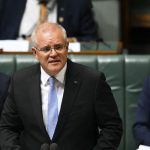Sustainable funding for higher education
The Turnbull government has decided to shelve the controversial university deregulation plans for this term. Professor Andrew Vann, Vice-Chancellor of Charles Sturt University, says we need to invest in higher education to allow our nation to flourish and prosper.
The Turnbull government recently announced that it would not be representing its university fee deregulation to the Senate for a 2016 start. We are many months past the point at which we would have needed to start implementing this, so the announcement is very welcome. It also means that the Government will not be applying a 20% cut to university funding which means that we finally have certainty about our budget for next year and again, this is very welcome.
What is less clear is what might happen next. Education Minister, the Hon. Simon Birmingham has committed to consult with the sector and stakeholders about future directions. This also is very welcome. From the Minister’s comments, it would seem that they are willing to canvass a range of options for funding futures. We do need to work our way towards a sustainable funding future for higher education. A succession of studies and reviews has concluded that the sector is underfunded. We also know that there are real problems with the structure of the Federal budget. It is plain from the experience with the current legislation that there is very strong opposition within the community to full fee deregulation. We shared these concerns. We already have fee deregulation for international and domestic prograduate students, so it is difficult to argue in principle that deregulation is fundamentally a bad thing. However, some of the impacts from the deregulation package would have been highly inequitable and troubling for our students, particularly in the agriculture and veterinary science space.
If we wish to find sustainable funding for higher education, it has to come from somewhere. The HELP income contingent loans scheme recovered through the taxation system is effectively a graduate tax. If the tax burden does not fall on graduates, it would need to fall somewhere else. Labor’s recent policy announcement commits to legislating per-student funding and proposes to fund this through taxes on multinational companies, superannuation and abolishing the Emissions Reduction Fund. So it seems that at the national level we will have to have a debate about sustainable expenditure and taxation. In my view, this is the mature political debate we have been missing through most of the last decade and it would be absolutely wonderful to see this start to happen.
Clearly, we need reform and that will involve difficult conversations. We will be working to ensure that the needs of our students and our communities are not forgotten in this. Many regional students are concerned about the costs of education – both in terms of the debt burden and the living costs while they study. Charles Sturt University makes a huge contribution to regional and rural workforce and for the health of our communities we cannot afford to see regional students priced out of education. We also know that working mature-aged students have been more price-sensitive in other countries. Many of these students are using education as an opportunity to relaunch their career and we cannot afford to see these deterred either. Finally, regional universities have a special mission to work with their communities and industries to help them grow and innovate. We are here, on the ground, and this just can’t be replaced from the capital cities. We need to ensure that any funding mechanism allows regional universities to continue with their research and engagement mission.
There is ample research to show that investment in higher education provides a strong economic return and allows nations to flourish and prosper. We need higher education policy that has this as its prime objective.
Professor Andrew Vann is Vice-Chancellor and President of Charles Sturt University. He has held a number of board and community leadership roles, is a Fellow of the Australian Institute of Company Directors, a Fellow of the Australian Institute of Management, Associate Fellow of the Australian Rural Leadership Foundation and a Fellow of the Institute of Engineers Australia.














Max Thomas
October 12, 2015 at 9:12 pm
Education funding
Thank you Prof. Vann for your succinct piece, especially as it relates to regional advanced education. I have retired from working in the field of recycled water irrigation. We hear a great deal about opportunities for our agricultural sector in Asia; 'Direct Action' carbon in soils, water recycling etc. However the apparent disconnect between these ideas and the obvious need for advanced education to implement them is worrying. Thanks also to 'Open Forum' for providing a space where such topics can reach a wider readership.